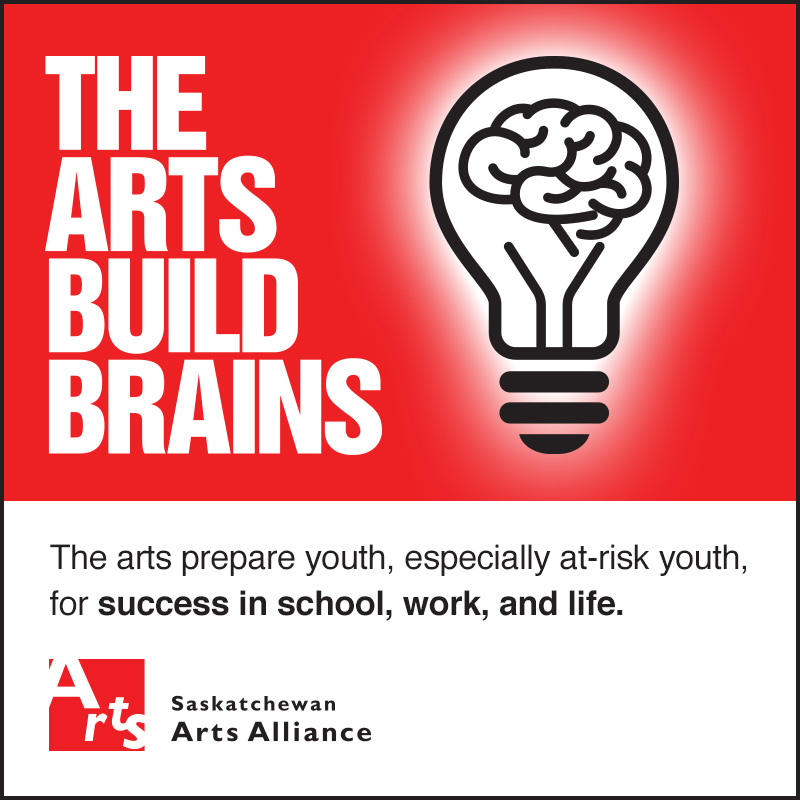Every Child Deserves an Arts Education
 Canadians value the arts. In a 2015 Business for the Arts survey, Canadian parents agreed:
Canadians value the arts. In a 2015 Business for the Arts survey, Canadian parents agreed:
- Engaging children in the arts helps them be more creative and expressive (84%)
- Engaging children in arts activities is important for their overall development (83%)
- Engaging in the arts gives children more confidence (81%)
- The arts help children develop a better understanding of themselves and others (75%)
The same study surveyed large Canadian businesses. 83% agreed that “Arts education has a positive effect on the lives of children and youth” and is an important reason for supporting the arts. (1)
Benefits of high-quality arts education programs:
- Teaching Arts is valuable; arts teach cultural literacy, artistic skills and techniques.
- Student achievement across academic areas (typically as represented by reading and mathematics performance on high stakes tests).
- Student motivation and engagement: improved attendance, persistence, focused attention, heightened educational aspirations, and intellectual risk taking.
- Good mind-habits: problem solving, critical and creative thinking, dealing with ambiguity and complexity, integration of multiple skill sets, and working with others; and
- Social competencies: collaboration and team work skills, social tolerance, and self-confidence (2)
Arts Education also Drives Innovation, as Dianne Warren’s report for the SAA explains:
- “Arts Education in schools is a means of developing the collection of skills comprising creativity. They are a necessary part of a contemporary education for our students, no matter what they plan to do after high school. The students in school today are the 21st century learners we’ve talked about for so long, and it behooves us to ensure that they acquire – through studies in the STEM subjects and the arts, through curriculum and partnerships with the professional arts community – the skills and abilities that will make them the future innovators of Saskatchewan” (3)
Arts Education develops five skills that underpin innovative behavior and are linked to the innovation process in youth. These skills match what employers say they most need in their new recruits, but which they too often find missing.
- Creativity
- Self-efficacy
- Energy
- Risk-propensity
- Leadership (4)
(1) Strategic Counsel, Building the Case for Business Support of the Arts: A Study Commissioned by Business for the Arts, Feb 2015.
(2) President’s Committee on the Arts and the HumanitiesReinvesting in Arts Education: Winning America’s Future through Creative Schools, Washington, DC, May 2011.
(3) Warren, Dianne. Future Innovators: Developing Creativity Through K-12 Arts Education in Saskatchewan Schools. Saskatchewan Arts Alliance, August 15, 2016. p12.
(4) C. Brooke Dobni, PhD, Achieving Growth through Innovation: The Role of Arts Education in Supporting Economic Sustainability, May 2014.